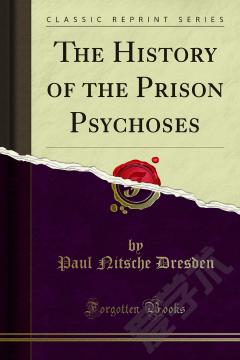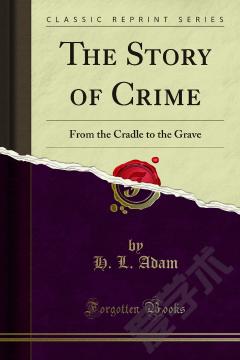The History of the Prison Psychoses
This work brings the reader to the present-day view-points with reference to the prison psychoses through the medium of a historical review Of their development in the German litera ture. Such a work should be welcomed by all who are interested in the problems of psychopathology and particularly those who long for more rationalistic methods of dealing with the criminal and with all of the problems of criminology. The movement towards rationalistic conceptions as opposed to feeling attitudes is an extremely slow one and has hardly yet taken so firm a rooting in this country that an unfriendly blast might not blow it away. Such a volume as the present one, therefore, should serve a distinct purpose in helping to fix atten tion upon those concepts and methods that make for a better understanding of the criminal and for more intelligent methods Of dealing with the many difficult problems that surround him. How discouraging it is to hear a magistrate read a sermon on morality to some degraded wretch who has been found guilty Of some, perhaps minor, offence, and then send him to prison for the extreme limit-prescribed by the statute! How pathetic if in the procedure the judge should show anger and resentment! How unintelligent are such exhibitions! It is as if a person had become ill from a long course of wrong living, extending over years, and the doctor should dismiss him with a prescription for a pill and say not a word about the regulation of his life. The criminal act which finally leads to a prison sentence is but the outcome of a life of distorted view-points, of standards of conduct turned and twisted out of all resemblance to those with which we are familiar, and to expect that the natural prod uet of such conditions can be metamorphosed by a three minute sermon displays a profound ignorance of human beings.
{{comment.content}}








 京公网安备 11010802027623号
京公网安备 11010802027623号